
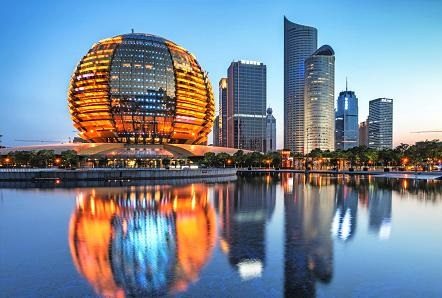
The one of World’s Top 15 Model Cities for Best Practices in Tourism
The United Nations World Tourism Organization (UNWTO) recently released its list of the World’s Top 15 Model Cities for Best Practices in Tourism. Hangzhou, China was included in the list for its innovative efforts in the protection and development of as well as continuous investment in the city’s historical and cultural resources.
In December 2016, UNWTO created an award recognizing the 15 cities worldwide considered by the organization as examples to emulate when it come to the adoption of best practices in tourism, among its 193 member countries. UNWTO plans to expand the best practices applied by the winners in other global destination cities. UNWTO selected 15 winners based on the results of a survey and a performance evaluation program conducted by a panel of judges at a special evaluation meeting held in September 2017.
Hangzhou applied for the Tourism’s Impact on Community and Culture category and was evaluated by the UNWTO. It was the first time Hangzhou competed for an award based on international tourism standards with the goal of taking its tourism sector to the next level and being benchmarked against international standards. The city has achieved a breakthrough with its presence at the evaluation.
Hangzhou was selected for inclusion in the list, thanks to its years of efforts in transforming the city into both an international tourism destination and an international city, as well as in enhancing the appeal of its local culture. The city highlighted its international marketing competitiveness by having itself benchmarked against the world’s most known tourism destinations and by leveraging its unique tourism resources. Chinese President Xi Jinping had made a point of promoting Hangzhou’s tourism resources at the G20 Summit held in Hangzhou in 2016, immediately raising the visibility of the city worldwide and cementing the city’s reputation as a go-to destination.
The honor will help Hangzhou accelerate its transformation into an international city as well as assist city managers in showcasing their achievements in terms of best practices for the tourism sector. In addition, the Hangzhou Tourism Commission was invited by UNWTO to give a presentation on best tourism practices at the UNWTO Annual Conference to be held in Kuala Lumpur in December 2017. Hangzhou was the only representative for model cities in the Asia Pacific region to attend the event.
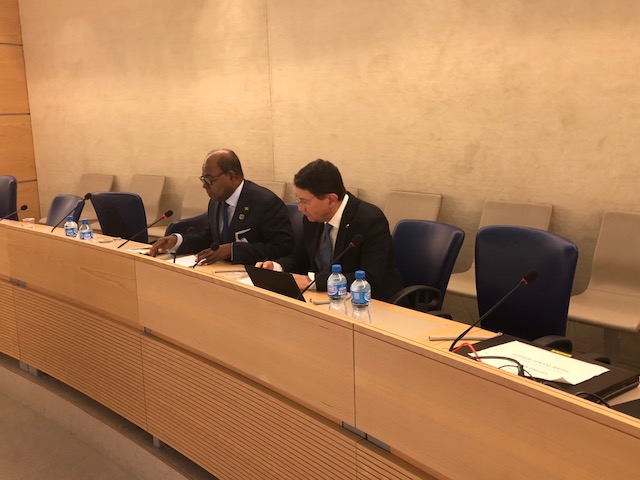
Minister Bartlett Signs Montego Bay Declaration in Geneva
KINGSTON Jamaica; December 19, 2017: Minister of Tourism Hon. Edmund Bartlett and the outgoing Secretary General of the United Nations World Tourism Organization (UNWTO), Dr. Taleb Rifai today (December 19, 2017) signed the Montego Bay Declaration which will chart the course forward for a sustainable tourism world agenda.
Following the signing, which took place during the UNWTO’s Closing Ceremony for the International Year of Sustainable Tourism for Development 2017, in Geneva, Switzerland; Minister Bartlett stated that, “the Montego Bay Declaration cements our legacy in the industry’s history books forever.”
The Declaration is one of the major outcomes of the recently concluded UNWTO, Government of Jamaica, World Bank Group and Inter-American Development Bank Global Conference on Jobs and Inclusive Growth: Partnerships for Sustainable Tourism, held at the Montego bay Convention Centre from November 27-29, 2017. It has been described as a blueprint for global tourism sustainability issues that will inform the next set of global millennial goals.
Building on the legacy of the International Year of Sustainable Tourism for Development 2017, which had the objective of setting a common action plan towards 2030, the Declaration which is a 15-point action plan, also highlights two principal points which the Minister believes are pertinent to the development of Jamaica’s tourism sector.
He noted that it outlines the need for Governments, private sector, donors and international and regional organisations to support the establish recommendation for the establishment of a Global Tourism Resilience Centre in the Caribbean.
“I am very pleased to share that the declaration not only has the support of the UNWTO but also the international community at large, who have expressed particular interest in the proposal to establish a Resilience Centre to mitigate the possible impact of disasters. We are currently in discussions with key stakeholders who I am certain will be giving their official endorsements soon,” said the Minister.
The Declaration also highlights the need for multilaterals to channel development financing to Small and Medium-Sized Tourism Enterprises (SMTEs), which drive 80 percent of global tourism and are important to the development of Jamaica’s second biggest employer and foreign exchange earner.
The aim of the closing ceremony was to bring the international community together to commit to realizing the universal 2030 Agenda for Sustainable Development through tourism, at the national and global level. Most importantly, it brought to a close, the initiatives and actions initiated this year to provide a roadmap for the global community at large to embrace sustainable practices and maximize the engagement in the global development agenda.
Minister Bartlett is scheduled return to the island on December 21, 2017.
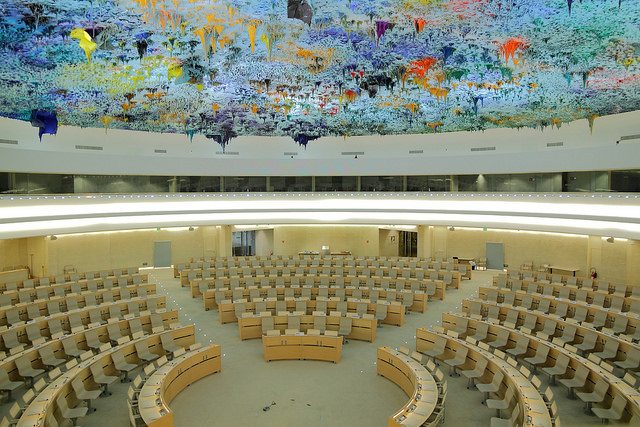
UNWTO sets tourism roadmap towards 2030 at the Palace of Nations in Geneva
Participants from around the world joined the Official Closing ceremony of the International Year of Sustainable Tourism for Development 2017 at the Palace of Nations, in Geneva, Switzerland. The event reviewed the year´s main achievements and discussed the roadmap for advancing the contribution of tourism towards the 2030 Agenda for Sustainable Development.
“2017, the International Year of Sustainable Tourism for Development, has been a unique opportunity for all of us to come together to promote the contribution of tourism to shape a better future for people and planet and to contribute to making this world a better place.“ said UNWTO Secretary General, Taleb Rifai, opening of the event. “We count on you as we embark on this exciting new journey towards 2030. I trust that together, as a sector, as people with the same vision and commitment, we will go far.” he added.
“Sustainability remains the bedrock of our activity. We will continue to drive the conversation on planning for and managing tourism growth, define a sector-wide response to climate change, work on how the sector can reduce illegal trade in wildlife and contribute to inclusive job creation” said Gloria Guevara, President and CEO, World Travel & Tourism Council (WTTC)
“It is so important that we succeed in making tourism sustainable by making sustainable tourism economically viable, culturally accepted, and universally practiced.” said Michael Møller, Director General, United Nations Office at Geneva (UNOG). “The United Nations World Tourism Organization deserves great credit for tackling this head on throughout this past year.” he added.
“I personally believe that the future of tourism lies in enabling ICT capacities. Accordingly, we should harness those powers for smart tourism… I believe that the way forward in our journey to 2030, is smart tourism. I call on all of you to guide me and support me in this endeavor” said Talal Abu-Ghazaleh, Chairman, Talal Abu-Ghazaleh Organization in Jordan.
”In the future, a strong international cooperation of all relevant actors involved in the tourism sector should become the driving force to promote sustainable tourism and to implement tourism policies efficiently” said Marie-Gabrielle Ineichen-Fleisch, State Secretary Economic Affairs (SECO) of Switzerland.
Addressing the event was also HM King Simeon II, Special Ambassador of the IY2017 who stressed the importance of public/private partnerships for sustainable tourism.
The panel discussions counted with the participation of the Ministers of Tourism of Costa Rica, Mauricio Ventura, Jamaica, Edmund Bartlett and Kenya, Najib Balala alongside representatives of IY2017 partners such All Nippon Airways, Amadeus, the Balearic Islands Tourism Agency, ECPAT International, the Institute for Tourism and Leisure, HTW Chur University in Switzerland, Minube, Myclimate, PRMEDIACO and the Ras Al Khaimah Tourism Development Authority in the United Arab Emirates.
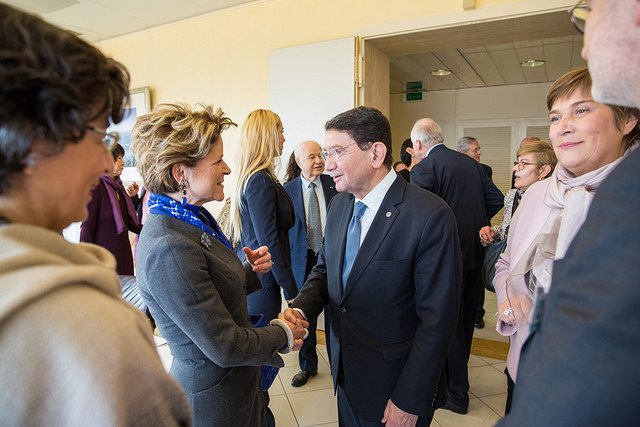
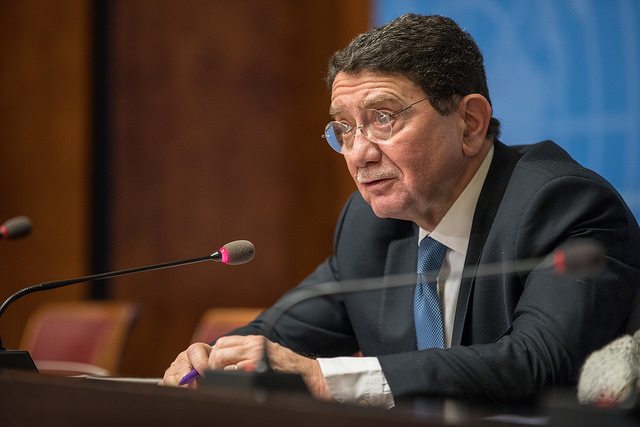
As part of the legacy of the IY2017, UNWTO presented the results of the ‘Tourism and SDGs’ Report developed in collaboration with the United Nations Development Programme (UNDP). The report which looks into the links between tourism and the SDGs in national policies as well as private sector strategies shows the relevance for the sector of Goals 1 (No Poverty), 4 (Quality Education), 8 (Decent Work and Economic Growth), 11 (Sustainable Cities and Communities), 12 (Responsible Consumption and Production), 13 (Climate Action), 14 (Life Below Water) and 17 (Partnerships for the Goals).
On the occasion, UNWTO launched the Tourism and the Sustainable Development Goals Programme as a legacy of the International Year of Sustainable Tourism for Development 2017. The Programme aims at advocating for the contribution of sustainable tourism´s to the 17 SDGs and encouraging the full integration of tourism and the SDGs in national, regional and global agendas. It includes the future ‘Tourism and SDGs’ online platform – a co-creation space to inspire and empower the tourism sector to act – developed by UNWTO with the support of SECO and an Ambassadors Initiative.
The Tourism and SDGs Ambassadors designated on the occasion include HE Shaikha Mai bint Mohammed Al Khalifa, President of Bahrain Authority for Culture and Antiquities, the President of Costa Rica, HE Luis Guillermo Solís, Mr. Huayong Ge, President of UnionPay China; Dr Talal Abu Ghazaleh, Chairman of the Talal Abu-Ghazaleh Organization and Dr Michael Frenzel, President of the Federal Association of the German Tourism Industry.
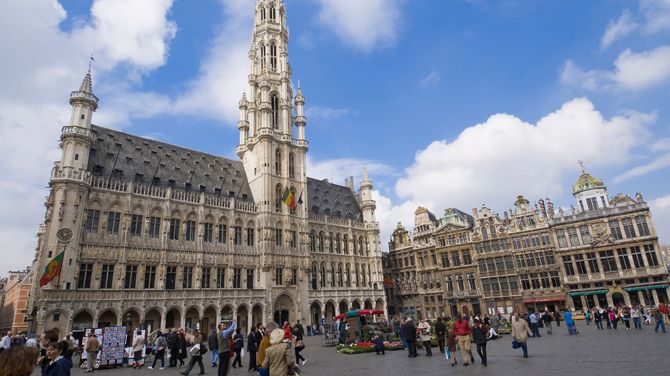
UNWTO and European Commission address the significance of the Tourism Satellite Accounts to measure the economic impact of the sector in Europe
The World Tourism Organization (UNWTO) and the Directorate-General for Internal Market, Industry, Entrepreneurship and SMEs (DG GROW) of the European Commission gathered national tourism policy makers and statisticians in Brussels to advance in the implementation of the measurement of the economic impact through Tourism Satellite Accounts.
As part of the events connected to the 2017 International Year of Sustainable Tourism for Development, and within the framework of the cooperation between UNWTO and DG GROW, the two institutions co-organized the Workshop “Measuring the economic impact of tourism in Europe: the Tourism Satellite Account (TSA)”, in collaboration with Eurostat. The event, hosted by DG GROW, was held in Brussels, Belgium on 29-30 November, 2017.
Bringing together over 100 policy makers (data users) and tourism statisticians and TSA compilers (data producers) from EU Member States and COSME [1] countries, the Workshop helped to bridge better understanding and entice collaboration amongst these key stakeholders.
“The economic importance of tourism in the European Union is increasingly recognized and better understood, partly thanks to the development of TSA in some EU Member States. It is important to create cohesion around this theme and we hope that the EU becomes an example in this regard to guide the rest of the regions,” said UNWTO Secretary-General Taleb Rifai.
A sense of optimism for tourism measurement and TSA in Europe emerged, alongside the realization that TSA is beyond a technical exercise, very much a strategic endeavor for the tourism sector.
The workshop was conducted with expertise from the European Commission (including Eurostat), UNWTO, UN Statistics Division (UNSD), Statistics Austria, the National Statistical Office of the Czech Republic, Destination Canada and Statistics Malaysia.
The topics debated ranged from technical inputs to governance issues and political leadership, all elements necessary for a successful TSA implementation. The participants exchanged ideas on the current status of the different national TSAs, their specificities and how to build the capacities and enabling environments for furthering their development. A key conclusion was that the challenges of TSA development in Europe have less to do with technical expertise and more with resource, communication, and political engagement.
The discussions have also emphasized the need to improve timeliness, while maintaining credibility, and fostering partnerships and dialogue between data producers and users. Reliable aggregated TSA estimates are key for strong tourism policy making which aims to support a sustainable and resilient tourism sector.
TSA is an instrument to measure and monitor the economic impact of tourism and links data on tourism to the broader economy. It is an accounting framework enabling the measurement and international comparison of the contribution of tourism to job creation, economic growth and the generation of wealth.The Conference held under the patronage of H.H. Sayyid Fahd bin Mahmoud al-Said, Deputy Prime Minister for the Council of Ministers of Oman, brought together Ministers of Tourism and Ministers of Culture as well as private sector stakeholders and experts with the objective of building and strengthening partnerships between the tourism and culture sectors and enhance their role in the UN’s 2030 Agenda for Sustainable Development.
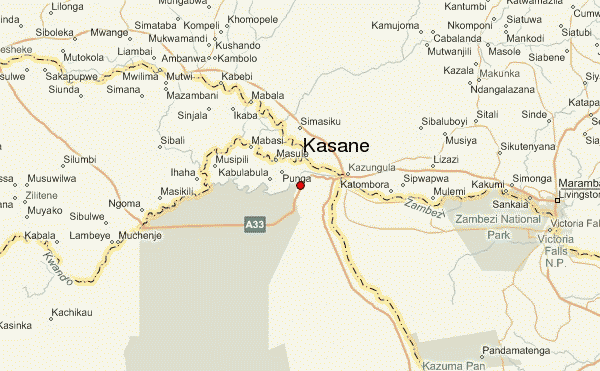
Botswana hosts the International Symposium and Annual Conference of the 10YFP Sustainable Tourism Programme (STP)
Kasane, capital of Chobe District in Botswana, hosted tourism stakeholders to exchange experiences and knowledge of innovative approaches to enhance tourism and conservation planning, financing and marketing. Under the theme “Empowering Tourism Destinations’ Sustainability through Innovation”, the 10YFP STP International Symposium and Annual Conference also discussed the role of the tourism sector in fighting climate change.
Inaugurated by Tshekedi Khama, the Minister of Environment, Natural Resources Conservation and Tourism of Botswana, the event began with a debate on how to market sustainability to trigger change among consumers. A second panel highlighted the relevance of integrating circular economy approaches into the tourism value chain to minimize waste, emissions and energy leakage at all stages of production. It also discussed the links between the tourism sector and the Paris Agreement, and the key role of destination managers therein.
The value of wildlife as a key asset of destinations was underlined in the third panel, dedicated to sharing experiences on wildlife tourism and its capacity to foster conservation given suitable financing frameworks. The last discussion focused on the application of new technologies – particularly geographic information systems and big data – to tourism planning, with the objective of promoting evidence-based decision making and increased synergies between tourism and conservation policy makers and practitioners.
‘The Tourism We Want’, a call to action to guide the network in the years to come
The second day of the event served to prepare the Kasane Call to Action for Sustainable Consumption and Production in Tourism under the title ‘The Tourism We Want’. The role of the 10YFP STP in the implementation of the Sustainable Development Goals (SDGs), particularly SDG 12, was debated through consultations among all participants aimed at identifying the priorities for the 10YFP Network in the coming five years. “The Tourism We Want” is the Network’s contribution to the legacy of the International Year of Sustainable Tourism for Development, which is being celebrated throughout 2017.
Partnerships and networking essential tenets for the implementation of the 2030 Agenda
Biodiversity and wildlife were present in most of the discussions, as well as the need to work in partnership with stakeholders of a diverse nature to advance shared goals and to multiply results. With 19 countries represented, the event was a good example of this approach: 40% of the over 100 attendees came from the private sector, 30% from NGOs, and 10% each from media, government and international organizations, including five different UN agencies and programmes.
The event was hosted by the Botswana Tourism Organization and co-organized by UNWTO and the governments of France, Morocco and the Republic of Korea, with support from the 10YFP Secretariat and UN Environment.
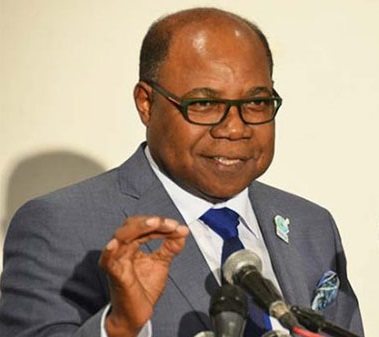
Bartlett to Present the Montego Bay Declaration at UNWTO Conference in Switzerland
KINGSTON, Jamaica; December 17, 2017: Minister of Tourism, Hon. Edmund Bartlett travels to Geneva, Switzerland today (December 17, 2017) , to present the recently unveiled Montego Bay Declaration, to delegates attending the United Nations World Tourism Organization’s (UNWTO) Closing Ceremony for the International Year of Sustainable Tourism for Development 2017.
“The Declaration of Montego Bay will become incorporated in the documents and the outcomes of the International Year of Sustainability. This is the perhaps the biggest legacy that we could hope for as a small destination – that our name will be indelibly etched in the lexicon of tourism references so that children yet unborn, will know that Montego Bay existed,” said Minister Bartlett.
The 15-point Declaration was one of the major outcomes of the recently concluded UNWTO Global Conference on Sustainable Tourism held in Montego Bay from November 27 to 29. It was first presented by Minister Bartlett and Executive Director of the UNWTO, Carlos Vogeler, on November 29 at the Montego Bay Convention Centre in St. James.
The Minister received the invitation to make the presentation from the UNWTO’s outgoing Secretary General Dr. Taleb Rifai, for the event which will take place on December 19, 2017.
“One of the elements I am most excited about from the Declaration is the establishment of a Global Resilience Centre – which we need here in the Caribbean, especially to build the capacity to respond to natural disruptions. Now the Caribbean, and Jamaica, will be the centre of an international resilience centre that will have the attention of the world,” he said.
The Minister also revealed that preliminary discussions have begun with representatives from the University of West Indies, Mona to establish the centre at their facilities. He also noted that 18 institutions from across the globe, have already indicted their willingness to work with Jamaica to establish the centre.
The United Nations designated 2017 as the International Year of Sustainable Tourism for Development. In the context of the universal 2030 Agenda for Sustainable Development and the Sustainable Development Goals (SDGs), the International Year has promoted the change in policies, business practices and consumer behaviour towards a more sustainable tourism sector that can contribute to all the 17 SDGs.
The aim of the closing ceremony is to bring the international community together to commit to realizing the universal 2030 Agenda for Sustainable Development through tourism, at the national and global level. Most importantly, it brings to a close, the initiatives and actions initiated this year to provide a roadmap for the global community at large, to embrace sustainable practices and maximize the engagement in the global development agenda.
Minister Bartlett is scheduled return to the island on December 21, 2017.
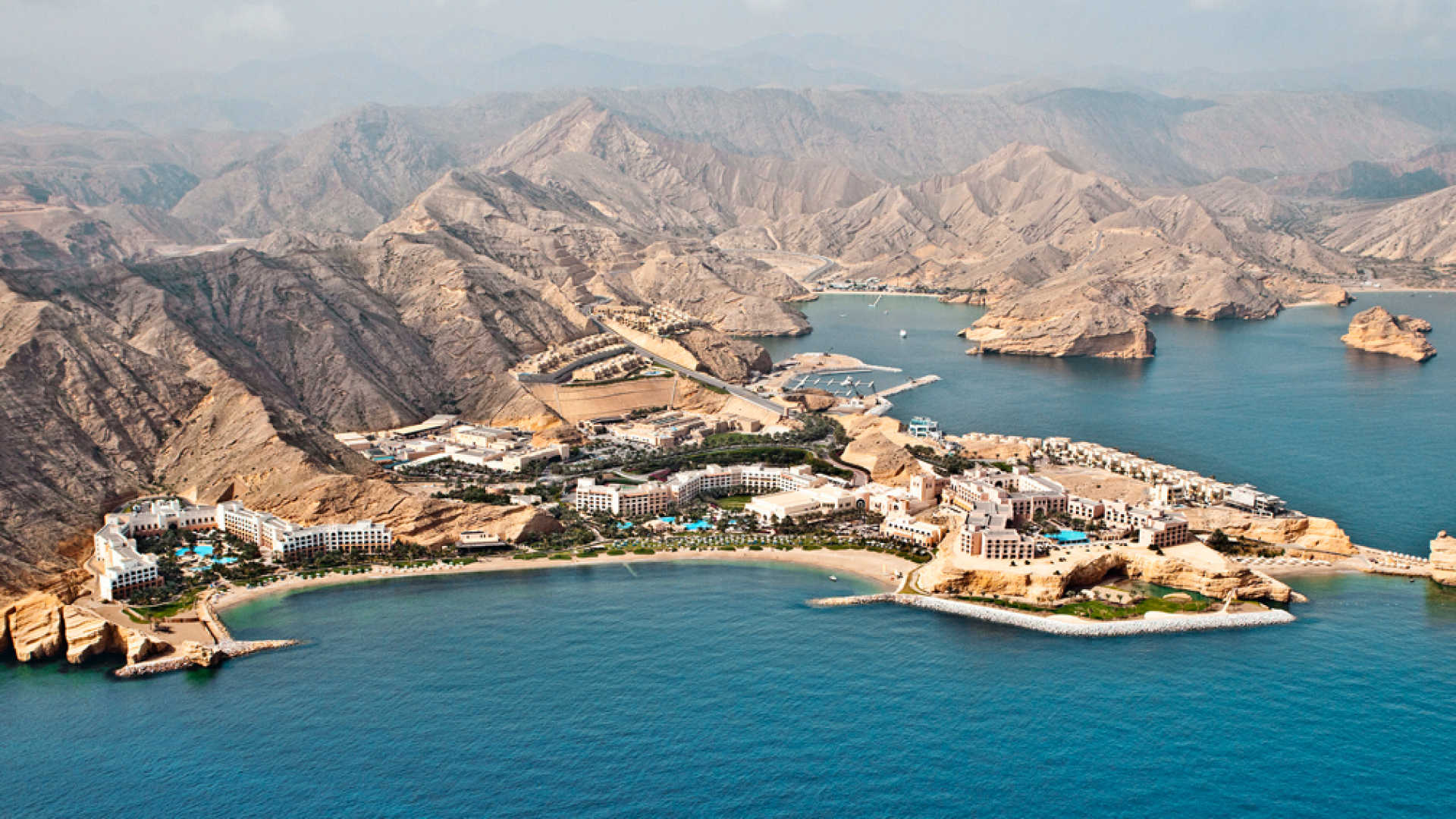
UNESCO and UNWTO Sign Muscat Declaration on Tourism and Culture: Fostering Sustainable Development
Culture, in all of its wondrous expressions, inspires more than 1.2 billion tourists to pack a bag and cross international borders each year. It is an important means to promote inter-cultural dialogue, create employment opportunities, curb rural migration, and nurture a sense of pride among host communities. Yet unmanaged, it can also harm the very heritage cultural tourism relies on.
Recognizing that a sustainable, approach with buy-in from all partners, is crucial to cultural tourism, peacebuilding and heritage protection, on 12 December, the Muscat Declaration on Tourism and Culture: Fostering Sustainable Development was signed by representatives of UNESCO, the World Tourism Organization (UNWTO), delegations, private sector, local communities and NGOs.
This concluded the two-day World Conference on Tourism and Culture co-organized by UNESCO and the UNWTO and hosted by the Sultanate of Oman. Through the Declaration, some 30 Ministers and Vice Ministers of Tourism and Culture, and 800 participants from 70 countries, reaffirmed their commitment to strengthen the synergies between tourism and culture, and to advance the contribution of cultural tourism to the 2030 Agenda on Sustainable Development.
“Cultural tourism is growing, in popularity, in importance and in diversity embracing innovation and change. Yet, with growth comes increased responsibility, responsibility to protect our cultural and natural assets, the very foundation of our societies and our civilizations” said UNWTO Secretary-General, Taleb Rifai.
Francesco Bandarin, UNESCO Assistant Director-General for Culture, emphasized that we need to create a positive dynamic between culture and tourism “that promotes sustainability while benefiting local communities. This dynamic must contribute to safe and sustainable cities, decent work, reduced inequalities, the environment, promoting gender equality and peaceful and inclusive societies.”
Ministers from Cambodia, Libya, Somalia, Iraq and Vietnam discussed the role of cultural tourism as a factor of peace and prosperity, and shared views on the capacity of tourism to support the recovery of their countries.
The Declaration calls for cultural tourism policies that not only empower local communities, but also employ new, innovative tourism models that advance sustainable development, host-guest interaction, and cultural exchange. It promotes integrating sustainable cultural tourism and the protection of heritage in national, regional and international security frameworks. The Declaration also references UNESCO’s 1972 Convention Concerning the Protection of the World Cultural and Natural Heritage and 2005 Convention for the Protection and Promotion of the Diversity of Cultural Expressions in relation to these objectives.
Ahmed Bin Nasser Al Mahrizi, Minister of Tourism of the Sultanate of Oman, highlighted the importance of exchanging experiences and ideas to achieving sustainable tourism development. Participants shared best practices on issues such as community engagement, visitors’ management, and use of resources from tourism in conservation in such diverse locations as the Ngorongoro Conservation Area in Tanzania, the Ras Al Khaimah in the United Arab Emirates or the Palace of Versailles in France. Entrepreneurship, SME’s and the protection of traditional knowledge were viewed as compatible with developing sustainable tourism, with examples from India in the hotel sector and in other regions developing local food initiatives. Other examples included World Bank projects revitalizing cultural heritage for sustainable tourism development, and Seabourn Cruise Line’s partnership with UNESCO to raise awareness of World Heritage with their guests.
Following the first UNWTO/UNESCO World Conference on Tourism and Culture in Cambodia in 2015, this second Conference was part of the official events of the 2017 International Year of Sustainable Tourism, so declared by the United Nations. Istanbul (Turkey) and Kyoto (Japan) will host the 2018 and 2019, editions respectively.
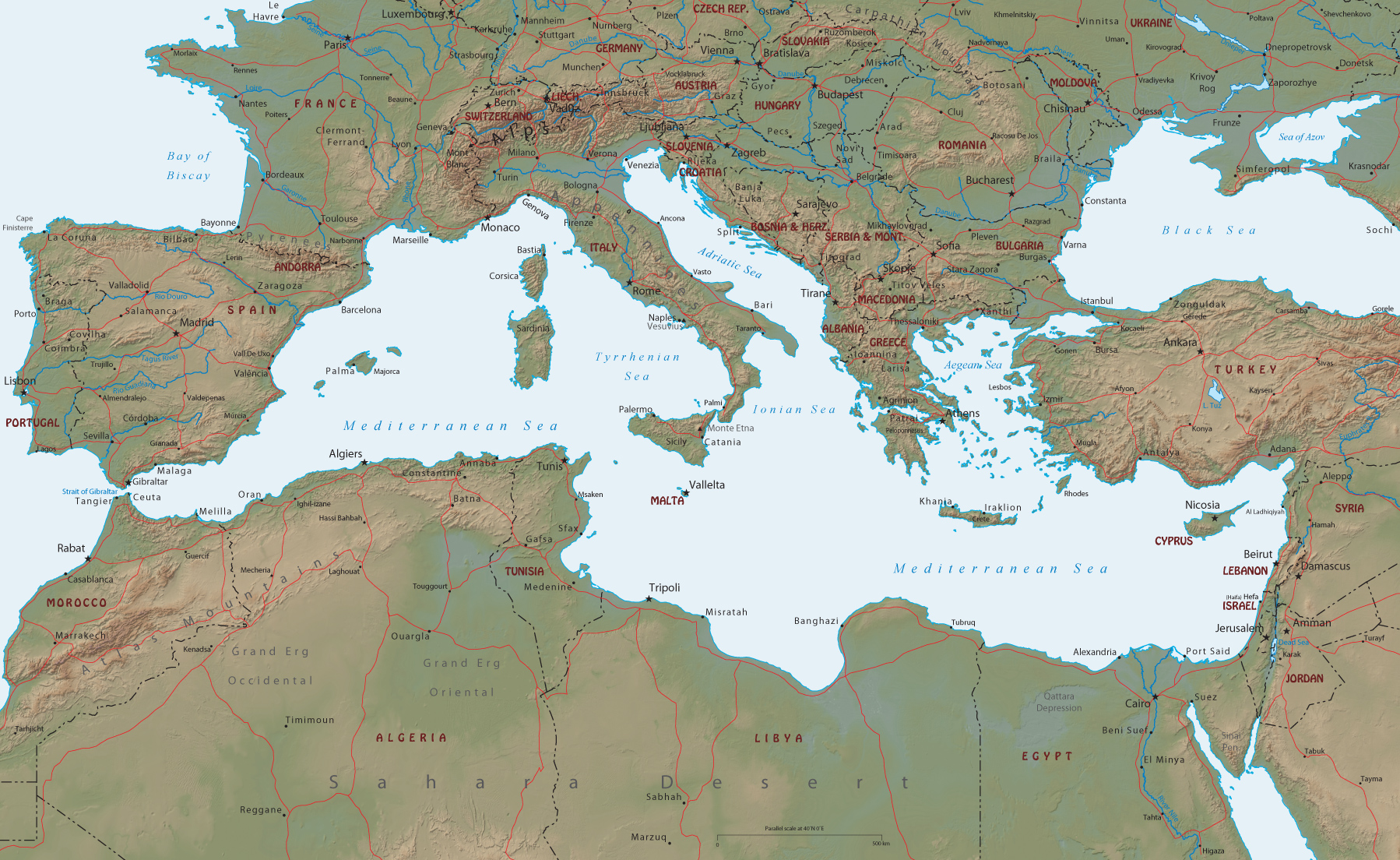
UNWTO: Southern and Mediterranean Europe, MENA drive tourism growth in October 2017
Destinations around the world welcomed 1.1 billion international tourists between January and October 2017, according to the latest UNWTO World Tourism Barometer. This represents a 7% increase on the same period of last year, or 70 million more international arrivals. Strong demand for international tourism across world regions reflects the global economic upswing.
The strong tourism demand of the earlier months of 2017, including the Northern Hemisphere summer peak season, was maintained through October. Destinations worldwide received a total of 1,127 million (+7%) international tourist arrivals (overnight visitors) in the first ten months of the year, 70 million more than in the same period of 2016. Results were driven by sustained growth in many destinations and a firm recovery in those that experienced declines last year.
In particular, destinations in Southern and Mediterranean Europe, North Africa and the Middle East showed extraordinary strength. Growth in international arrivals exceeded 7% in all destinations of Southern and Mediterranean Europe, with a rapid recovery seen in Turkey and double-digit increases for most of the region’s other destinations. In North Africa and the Middle East, Egypt, Tunisia and Palestine rebounded strongly from previous years’ declines, while Morocco, Bahrain, Jordan, Lebanon, Oman and the United Arab Emirate of Dubai all continued to report sustained growth.
“These robust results, the best we have seen in many years, reflect the sustained demand for travel around the world, in line with the improved global economy and the rebound of destinations that suffered declines in previous years,” said UNWTO Secretary-General Taleb Rifai at the 2nd UNWTO/UNESCO Conference on Tourism and Culture, held on 11-12 December in Oman.
“As we gather in Oman for this important event, we must acknowledge the strong resilience of tourism reflected in the continuous growth in many destinations of the Middle East, and the rapid recovery in others. Tourism brings benefits to local communities and visitors through the promotion of peace and mutual understanding and, as this event highlights, respect for cultural heritage and values.” Mr. Rifai added.
Regional Results
Europe (+8%) led growth in international arrivals in the first ten months of 2017, driven by remarkable results in Southern and Mediterranean Europe (+13%). Western Europe (+7%) rebounded from weaker results last year, while Northern Europe (+6%) enjoyed ongoing solid growth. Arrivals in Central and Eastern Europe grew 4% between January and October 2017.
Africa (+8%) was the second fastest-growing region over this period, thanks to a strong recovery in North Africa (+13%) and the sound results of Sub-Saharan Africa (+5%).
In Asia and the Pacific (+5%) results were led by South Asia (+10%), with South-East Asia (+8%) and Oceania (+7%) also enjoying a robust increase in arrivals. North East Asia (+3%) recorded more mixed results, with some destinations reporting double-digit increases, and others, declines.
South America (+7%) continues to lead growth in the Americas, where arrivals overall increased by 3%. Central America and the Caribbean both grew 4%, with the latter showing clear signs of recovery in October in the aftermath of hurricanes Irma and Maria. In North America (+2%), robust results in Mexico and Canada contrast with a decrease in the United States, the region’s largest destination.
Results in the Middle East (+5%) through October were mixed, with some destinations rebounding strongly and others continuing to report sustained growth, but the regional average was weighed down partly by a few that showed declines.
Strong recovery of outbound tourism demand from Brazil and Russia
As for outbound markets, 2017 is marked by a strong pickup of expenditure on international tourism in Brazil (+33%) and the Russian Federation (+27%) after some years of declines.
Most of the other source markets continued to grow at a sustained pace. Among the top 10 source markets, China (+19%), the Republic of Korea (+11%), the United States and Canada (both +9%), and Italy (+7%) reported the fastest growth in international tourism expenditure. Expenditure from Germany, the United Kingdom, Australia, Hong Kong (China) and France grew between 2% and 5%.
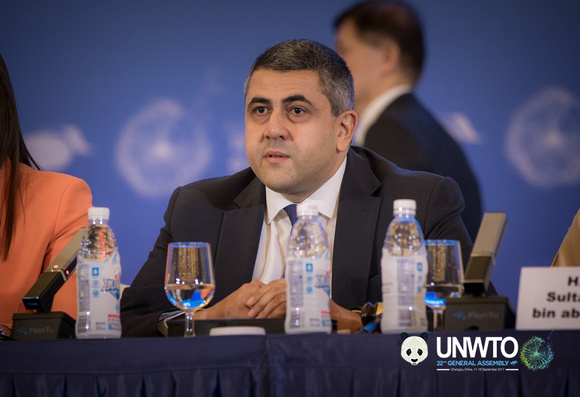
What happened and what is next for UNWTO? The untold story…
The World Tourism Organization on September 14, 2017, in Chengdu, China during the UNWTO General Assembly confirmed Zurab Pololikashvili, the candidate from Georgia, as the next Secretary-General of the United Nations World Tourism Organization (UNWTO). This confirmation was done by acclamation.
The General Assembly is the supreme body of UNWTO. Every 5th country is elected to be on the Executive Council to effectively make all recommendations for the General Assembly a simple process. It’s a rubber stamp process.
Unless there is an issue, and this last assembly had a massive issue, all of which required more than a rubber stamp approval of Madrid’s recommendation for who would be the new Secretary-General.
On September 12, the same Executive Council that voted for Zurab, the 106th session of the UNWTO Executive Council met for the last time in Chengdu, to present their recommendation, and to deal with the intervention by Zimbabwe about “irregularities” in the original election for Zurab Pololikashvili.
The Zimbabwe Minister of Tourism and Hospitality at that time, Dr. Walter Mzembi, was very clear and firm of his desire to have this issue discussed at the General Assembly. Put it all out on the table, let the Executive Council decide, was his forthright position.
Stay with this story, it gets strange. After the top level, closed-door discussions, Mzembi finally agreed to withdraw his objection at the General assembly, after he was assured there would be an election by secret ballot at the General Assembly, rather than a confirmation by acclamation if only one country asks for it.
The understanding was: No rubber stamp, it would be voted on.
This is important, ordinarily, the vote would be by acclamation. Mzembi was also assured there would be a committee to investigate the entire UNWTO process for future elections. It was strongly hinted to Mzembi he would be asked to spearhead this committee.
So, when The Gambia, during the General Assembly requested the secret ballot, this country was bullied to withdraw their request. Outgoing Secretary-General, Taleb Rifai made a large stink about requesting a secret ballot instead of acclamation, claiming in the assembly that this would destroy the unity of the organization.
He wanted the rubber stamp approval, despite the assurances made to Mzembi, this would not occur if anyone asked a secret ballot. So much for the top level closed door meetings assurances. Supporting Rifai were countries friendly with Georgia, and it appeared they were bullying the Gambia to withdraw their request for a secret ballot. Under immense pressure, Gambia did not want to appear to stand against the rest of the world and did eventually withdraw their request for the secret ballot.
In the meantime, a lobbyist convinced Minister Mzembi from Zimbabwe to accept acclamation. Subsequently, Mzembi walked up to the stage, and all three men, Mzembi, Rifai and Pololikashvili shook hands. Bring out the rubber stamp, the election was over.

Chapter two of this sorry story happened a day after the General Assembly when the new 107th session of the newly elected Executive Council met on September 16 in Chengdu. It was fully expected, as is the long-standing UNWTO tradition for any newly confirmed Secretary-General to present his deputy, and the rest of his executive team.
Curiously, this did not occur, because Pololikashivili wasn’t “ready”. Pololikashivili asked outgoing Secretary-General Taleb Rifai to push back the presentation and announce an extraordinary session of the Executive Council on the sidelines of the FITUR trade show in January 2018 in Madrid. Rifai announced this prominently at the 107th Executive Council meeting.
According to information provided to eTN, the employment contract for Carlos Vogeler, who also ran for the Secretary-General post, was not renewed as it was for other Executive Directors of the UNWTO. Zurab Pololikashivili told Vogeler his services would no longer be needed after Vogelers contract will expire December 31, 2017
It is not clear what will happen after outgoing Secretary-General, Taleb Rifai leaves his post. If the non-renewal of Vogelar’s contract is any indication, along with the lack of transparency, combined with backroom wheeling and dealing during the election, we as an industry should be very concerned, if not alarmed.
Based on reliable information received, and from reports of multiple clandestine meetings between Pololikashivili and the Chinese delegation before the Chengdu General Assembly, China has a good chance to be awarded the coveted UNWTO Deputy Secretary-General position.
If this occurs China will have even more global influence after the recent announcement of their own World Tourism Alliance during the UNWTO General Assembly in Chengdu.
Industry observers speculate with Pololikashivili having attended the recent wine conference in Argentina, this South American country will be featured in Pololikashivili’s still unknown executive team. The next WTTC Summit in 2018 will be in Buenos Aires.
The future of UNWTO is very unclear, and transparency within the UNWTO may well be a thing of the past. What is clear, Pololikashivli owes a great deal to Taleb Rifai. Without Rifai’s illogical backing and odd, unwavering support, the candidate from Georgia would not today be occupying world tourism’s top office.
Hopefully, Taleb Rifai will be doing the right thing for UNWTO, and call for this extraordinary Executive Council meeting in January and look at the structure as his last legacy act in the name of good international corporate governance and keeping to his word to the General Assembly.
This is the first time WorldTourismWire is releasing two recordings from the election proceedings at the UNWTO General Assembly in Chengdu. Do listen to these recordings from Chengdu. They are enlightening and released the first time on this news network.
FOLLOW UP:
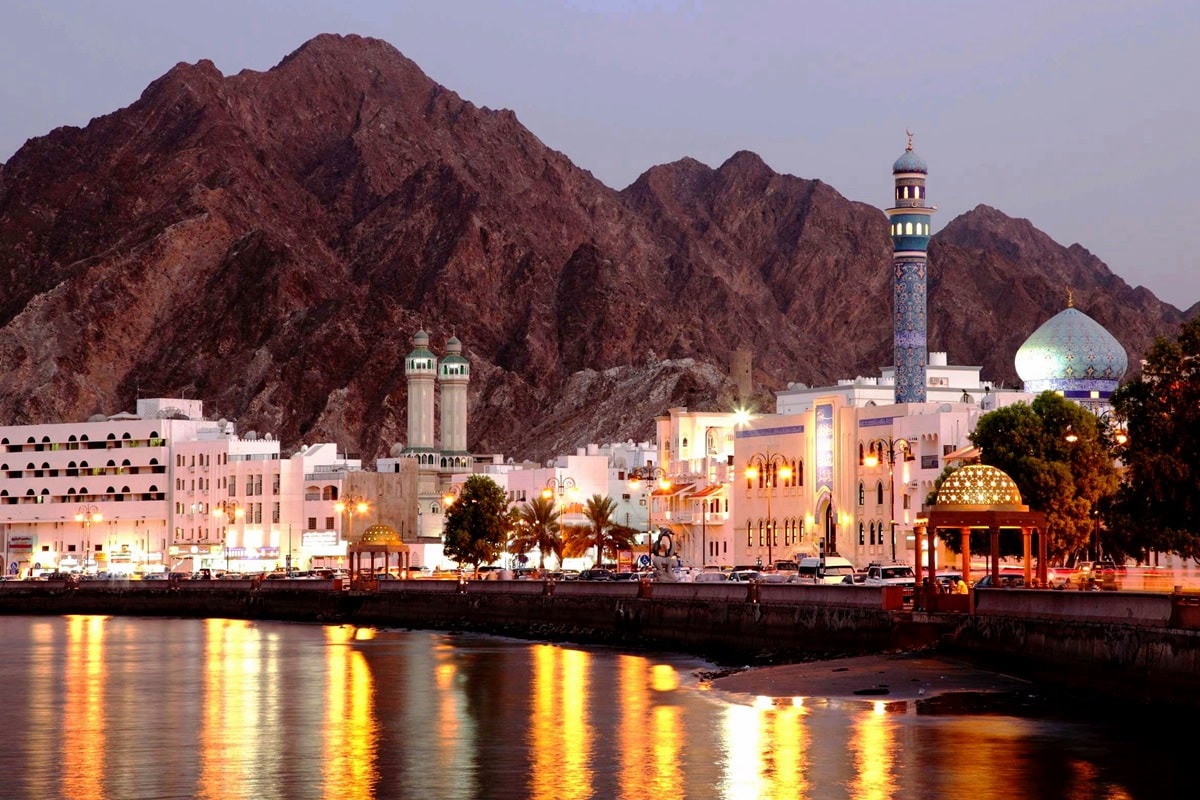
Tourism and Culture to work together for the Sustainable Development Goals
Over 800 participants from 70 countries gathered in Muscat, capital city of the Sultanate of Oman on 11-12 December 2017 for the Conference, an official event in the calendar of the International Year for Sustainable Tourism for Development 2017.
The Conference held under the patronage of H.H. Sayyid Fahd bin Mahmoud al-Said, Deputy Prime Minister for the Council of Ministers of Oman, brought together Ministers of Tourism and Ministers of Culture as well as private sector stakeholders and experts with the objective of building and strengthening partnerships between the tourism and culture sectors and enhance their role in the UN’s 2030 Agenda for Sustainable Development.
The Muscat reaffirms the commitment to:
1. Strengthen the synergies between tourism and culture and advance the contribution of cultural tourism to the 2030 Agenda on Sustainable Development and the 17 SDGs;
2. Enhance the role of tourism and culture in peace building and heritage protection, especially in conflict affected areas;
3. Promote responsible and sustainable tourism management of cultural heritage;
4. Encourage a creative and innovative approach for sustainable urban development through cultural tourism; and
5. Explore the inter-linkages between culture and nature in sustainable tourism.
“The Sultanate of Oman is richly endowed with many diversified natural resources spread in all governorates of the country, in addition to a rich historic and cultural heritage, which dates back to many centuries in the history of humanity. Our main long term objective is to achieve economic diversification, together with upgrading the direct and indirect contribution of the sector in GDP, provision of direct and indirect employment opportunities for the national labour force, enhancing government revenues, supporting the balance of payments and achieve the highest level of regional development” said H.E. Ahmed Nasser Al Mahrizi, Minister of Tourism of Oman, opening the meeting.
“Two years ago we met in Cambodia for the First UNWTO/UNESCO Tourism and Culture Conference. Today am very pleased that we reassume this dialogue here in Muscat. A dialogue that should happen every day around the globe. Yet that often finds itself limited by us living in separate silos”, said UNWTO Secretary-General Taleb Rifai.
“With over 1.2 billion people now crossing international borders each year, tourism represents a golden opportunity to break down barriers of ignorance and prejudice. It plays an important role as a vehicle for inter-cultural dialogue and, ultimately, peace.”, said Francesco Bandarin, UNESCO Assistant Director-General on Culture, in his opening speech, on behalf of UNESCO Director-General, Audrey Azoulay.
“UNESCO and UNWTO are also united in our commitment to tackling the challenges of poverty and development through sustainable tourism.” he added.
On the occasion of the Conference, H.E. Ms. Eliza Jean Reid, First Lady of Iceland, was officially appointed the UNWTO Secretary-General as Special Ambassador for Tourism and the Sustainable Development Goals (SDGs). UNWTO launched the Special Ambassadors for Tourism and the SDGs Programme as a legacy of the International Year of Sustainable Tourism for Development 2017.
The Conference initiated with a Ministerial Dialogue moderated by John Defterios from CNN International, focusing on policy and governance frameworks between tourism and culture to support responsible, culturally-aware, and inclusive tourism that contribute to the socio-economic development of host communities, promote cross-cultural exchanges, and generate resources for the safeguarding of tangible and intangible heritage.
A Special Ministerial Dialogue addressed the role of cultural tourism as a factor of peace and prosperity. Ministers from Cambodia, Libya, Somalia, Iraq and Vietnam shared views on the capacity of tourism to support the recovery of their countries.
The technical sessions focused on tourism development and protection of cultural heritage and promoting responsible and sustainable tourism management at World Heritage sites, culture and tourism in urban development and creativity and the relevance of cultural landscapes in tourism and the integration of natural and cultural heritage philosophies and procedures for sustainable tourism development.
Istanbul (Turkey) and Kyoto (Japan) will host the 2018 and 2019 editions of the UNWTO / UNESCO World Conference on Tourism and Culture.
